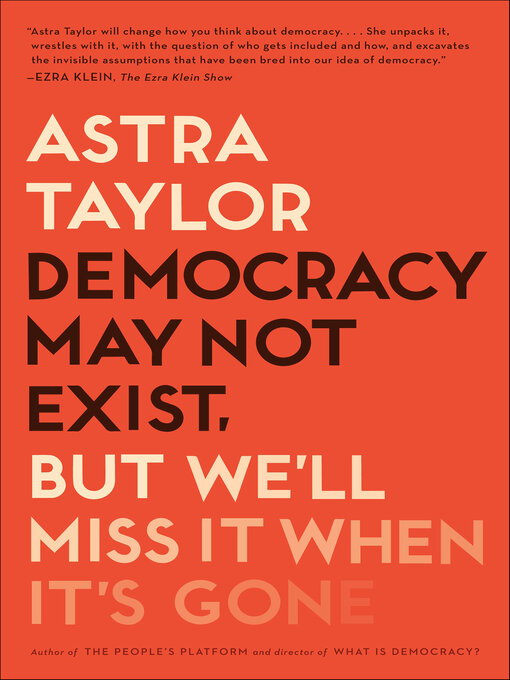- English
- 中文(简体)
- 中文(繁體)
- Bahasa Melayu
- தமிழ்
There is no shortage of democracy, at least in name, and yet it is in crisis everywhere we look. From a cabal of plutocrats in the White House to gerrymandering and dark-money campaign contributions, it is clear that the principle of government by and for the people is not living up to its promise.
The problems lie deeper than any one election cycle. As Astra Taylor demonstrates, real democracy—fully inclusive and completely egalitarian—has in fact never existed. In a tone that is both philosophical and anecdotal, weaving together history, theory, the stories of individuals, and interviews with such leading thinkers as Cornel West and Wendy Brown, Taylor invites us to reexamine the term. Is democracy a means or an end, a process or a set of desired outcomes? What if those outcomes, whatever they may be—peace, prosperity, equality, liberty, an engaged citizenry—can be achieved by non-democratic means? In what areas of life should democratic principles apply? If democracy means rule by the people, what does it mean to rule and who counts as the people?
Democracy's inherent paradoxes often go unnamed and unrecognized. Exploring such questions, Democracy May Not Exist offers a better understanding of what is possible, what we want, why democracy is so hard to realize, and why it is worth striving for.
"Astra Taylor will change how you think about democracy. . . . She unpacks it, wrestles with it, with the question of who gets included and how, and excavates the invisible assumptions that have been bred into our idea of democracy." —Ezra Klein, The Ezra Klein Show
"An impressive contribution. . . . Taylor sets out to impart some coherence and substance to the term in order to rescue it from ignorance and obfuscation and displays considerable intellectual nimbleness." —Randall Kennedy, The New York Times Book Review
"Magnificent, paradigm-shifting . . . Taylor's deep and wide examination of democratic movements, conversations, and grassroots institutions makes the reader feel . . . democracy as pleasure of thinking and acting." —The Los Angeles Review of Books


